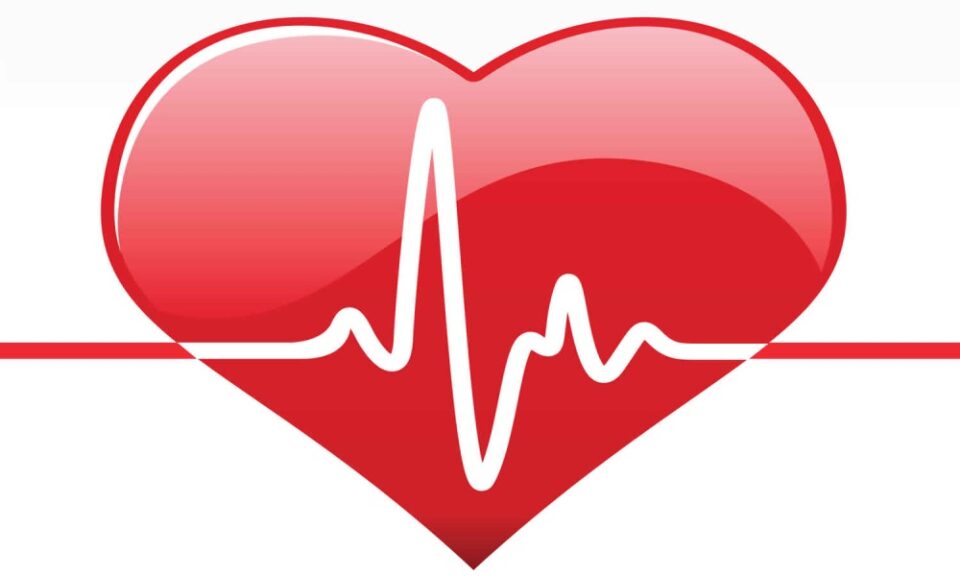Your heart is a marvel of nature, tirelessly pumping blood throughout your body, ensuring that every cell gets the oxygen and nutrients it needs to function properly. To achieve this, the heart’s electrical system orchestrates a symphony of carefully timed contractions. However, sometimes this system can malfunction, leading to a condition known as a heart block. In this blog post, we’ll explore what such blockages are, the different types of heart block there are, and most importantly, how to detect warning signs that should prompt you to seek medical attention.
Understanding Heart Blocks
A heart block, also known as an atrioventricular (AV) block, is a disturbance in the electrical conduction system of the heart. This electrical system coordinates the heart’s contractions, allowing it to beat at a regular and steady pace. When a heart block occurs, it disrupts this coordination and can lead to an irregular heartbeat, which can have serious consequences. A top hospital in Delhi is what you should rely on to address such a situation in the most effective manner possible.
Here are the three main types of heart block:
First-Degree Heart Block: In this type of heart block, the electrical impulse from the atria to the ventricles is delayed, but all impulses reach the ventricles. This delay is usually minor and doesn’t typically cause noticeable symptoms of heart block.
Second-degree Heart Block: This type is characterized by intermittent failure of electrical impulses to reach the ventricles. There are two subtypes:
- Type I (Wenckebach): The intervals between beats gradually lengthen until an impulse is dropped. The symptoms of heart block in these cases must be closely observed.
- Type II: Occasionally dropped impulses occur without progressive lengthening of the intervals.
Third-degree Heart Blocks: Also known as complete heart block, this is the most severe types of heart block. The electrical impulses originating in the atria are completely blocked from reaching the ventricles. As a result, the atria and ventricles beat independently, which can lead to dangerously slow heart rates.
Warning Signs of Heart Blocks
Now that we’ve covered the basics of heart blocks, let’s explore the symptoms of heart block, ones that must be monitored closely. Keep in mind that the symptoms of heart block can vary depending on the type and severity of the block.
Fatigue and Weakness: If you often feel unusually tired or weak, it could be a sign of a heart block. This is especially true if these feelings come on suddenly and without a clear explanation.
Dizziness or Lightheadedness: The types of heart block can disrupt the flow of blood to your brain, leading to dizziness or lightheadedness. You may feel unsteady on your feet or even faint.
Shortness of Breath: Difficulty breathing, especially during physical activity or when lying flat, can be a warning sign of a heart block. This is because your heart may not be pumping blood efficiently.
Chest Pain or Discomfort: While chest pain can be indicative of various heart conditions, it’s worth noting that some individuals with heartblocks experience chest discomfort. This can range from light discomfort to more excruciating pain.
Irregular Heartbeat: Palpitations, skipped beats, or an irregular pulse can be a sign of a heart block. Pay attention to your heartbeat, especially if you notice a sudden change in its rhythm.
Fainting (Syncope): If you faint without any apparent reason, it’s essential to consider it among the symptoms of heart block, especially if it occurs with other signs like dizziness or weakness.
Exercise Intolerance: If you find that you can’t tolerate physical activity as well as you used to, it might be due to a heart block affecting your heart’s ability to pump blood efficiently during exercise.
Cold Sweats: Experiencing cold, clammy sweats, particularly in conjunction with other symptoms like chest pain or dizziness, should raise concern.
When to Seek Medical Attention
If you or someone you know is experiencing any of the warning signs mentioned above, it’s crucial to seek medical attention promptly. While some heart blocks may not require immediate intervention, others, such as third-degree heart blocks, can be life-threatening and demand urgent treatment.
Your healthcare provider will perform a thorough evaluation, including an electrocardiogram (ECG or EKG), to diagnose the types of heart block and severity that they come with. Treatment options may include medications, pacemakers, or, in severe cases, surgery.
Preventing Heart Blocks
Prevention is always better than cure, and there are steps you can take to reduce your risk of developing heart blocks:
Maintain a Healthy Lifestyle: A heart-healthy diet, regular exercise, and avoiding smoking are essential for keeping your heart in good shape.
Regular Check-Ups: Routine check-ups with your healthcare provider can help detect heart conditions early, including a heart block.
Manage Chronic Conditions: If you have conditions like high blood pressure, diabetes, or coronary artery disease, manage them effectively to reduce your risk of blockage development.
Medication Compliance: If you’re prescribed medications for heart-related conditions, it’s crucial to take them as directed by your healthcare provider.
Conclusion
Your heart is a remarkable organ, and maintaining its health is of utmost importance. Understanding the warning signs of a heart block is a crucial step in taking care of your heart’s electrical system. If you or someone you know experiences any of the symptoms mentioned in this blog post, don’t delay seeking medical attention. Prompt diagnosis and appropriate treatment can make a significant difference in managing heart blocks and ensuring a healthy heart for years to come. Remember, your heart deserves the best care you can give it.
Want to make your heart the happiest it has been? Visit a super-speciality hospital in Delhi right away.

